Start-up machine revs up in NCR, from e-scooters to a fuel delivery module
A close look at the Greater Noida-based Gemopai Electric electric two-wheeler OEM and Fuel Buddy, an online fuel delivery platform.
The start-up revolution is alive and kicking the world over and in India. The rapid pace at which ideas and innovation are zipping into the market is something not seen in the recent past. Not shackled by management mantras, nor fettered by conventional wisdom, start-up India is taking the path less trodden and how. Be it Bangalore, the IT and start-up hub of the country, or Tel Aviv, the start-up world's most happening place, the entrepreneurial engine is revving up worldwide. And, it's happening in NCR too.
Gemopai Electric
Moving from erstwhile business interests in consumer electronics and mobile phones in Hong Kong and China, Amrit Raj Singh, co-founder and managing director, Goreen E-mobility, set up the company in 2016 with an aim to offer green and sustainable mobility solutions to the commuting masses in India.

Amrit Raj Singh, co-founder and managing director, Goreen E-mobility: “Government support with the FAME II scheme and the GST reduction to 5 percent has brought in a very positive sentiment to the EV industry and to us."
From his many visits to China, Singh saw how the Chinese automotive market transformed into an EV hub in a really short span of time starting 2015, all with a purposeful government push and hand-holding through various incentives. A similar trend was being seen in India with the government offering incentives under the FAME scheme to consumers on purchase and use of EVs. This came as a major boost for electric two-wheelers, which soon became equitable to conventional two-wheelers in TCO (total cost of ownership) after the government’s subsidy getting credited back, and started drawing the attention of entrepreneurs to enter this market.
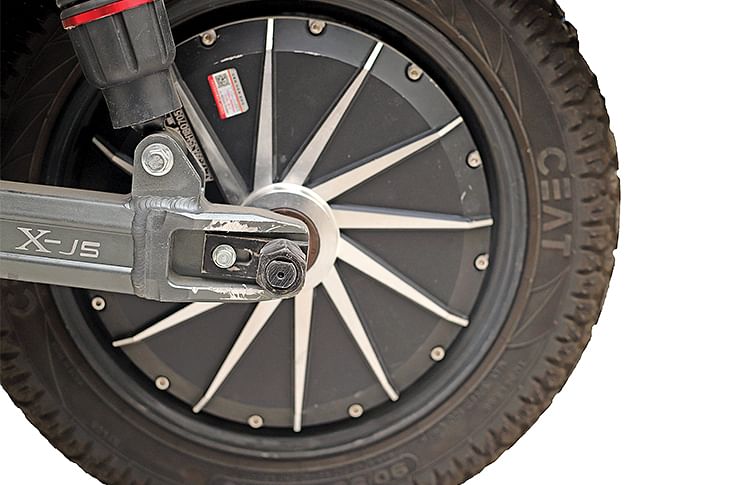
As a result, the second half of 2016 saw Goreen E-mobility ink a joint venture with China’s Opai Electric for local manufacture of its electric scooters and to retail them under a combined brand — Gemopai Electric. Gemopai Electric now has a assembly unit spread across 20,000 square feet, invested into completely by Goreen E-mobility, in Greater Noida, with an annual production capacity of up to 125,000 units.
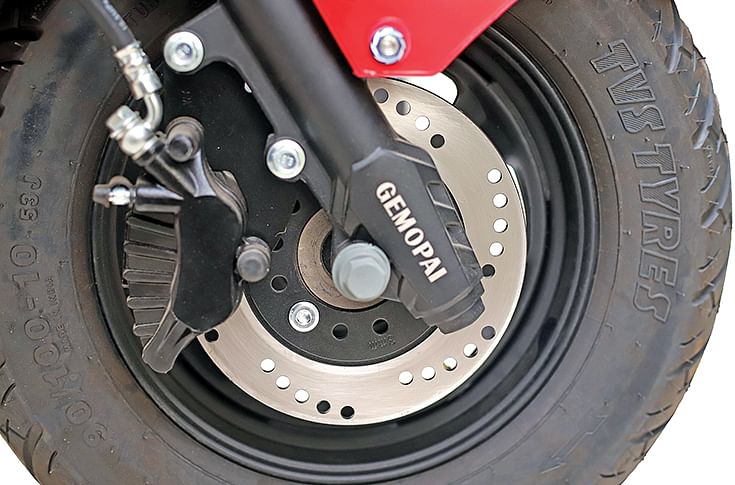
While the company began assembly operations in June 2018, actual retails only started in September 2018 with the launch of the first electric scooter — the Gemopai Electric Ryder. The 48V scooter comes equipped with a 20Ah detachable Li-ion battery that powers a 0.2kW (peak power) hub motor driving the rear wheel. The e-scooter is an ECE-certified product for sale in Europe, and in India, approved by ARAI. It can travel a maximum of 90km on a full charge. The company says that it has sold over 2,500 units of the Ryder till now from its 50-odd dealer network spread across Tier 1 and Tier 2 cities such as Lucknow, Haryana, Patna, Guwahati, Nagpur, Nashik, Hyderabad and Delhi-NCR. Moreover, it is also exporting the scooters to Nepal.
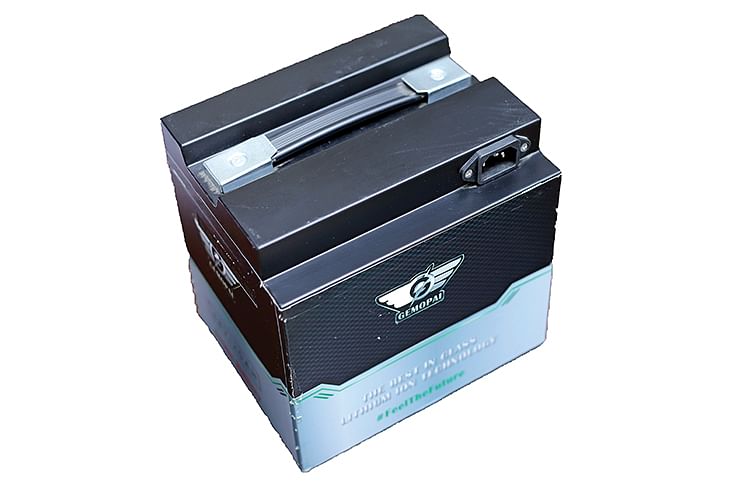
Now, as it gears up to launch two more models one each in the high-speed (above 30kph) and low-speed categories by mid-September 2019, Gemopai Electric is working on a network expansion plan of reaching 100 retail outlets by end-FY2020, some of which will come up in places like Vadodara and Gandhinagar, in Gujarat.
Its next offerings — the Gemopai Astrid and the Gemopai MISO (Mini Scooter) — will come with a 2.4kW and a 0.2kW motor, respectively. While the Astrid will become its new flagship, offering a 90km claimed range from its 1.7kWh Li-ion battery, the MISO will sit at the bottom of the pyramid, offering a low-speed ride and range of up to 75km on a single charge. The company says that the recent incentives in the form of GST reduction on EVs to 5 percent, has brought in more footfalls into its outlets, what with the prices of the Ryder dropping to Rs 60,000 and the Astrid planned to be launched at around Rs 75,000 on-road.
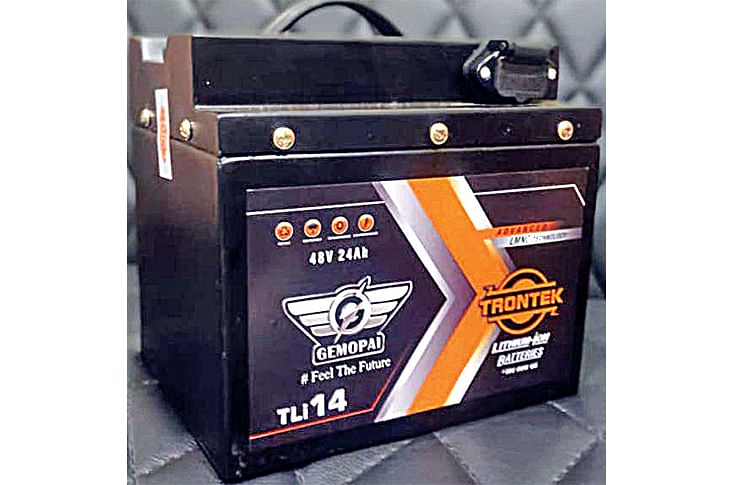
“Government support with FAME II and GST reduction has brought in a very positive sentiment to the EV industry,” says Singh, speaking to Autocar Professional in a telephonic interaction. Gemopai is also exploring a more powerful, IoT-enabled version of the Astrid, with bigger battery and higher range of up to 125km, which could be launched towards the end of the current calendar year.
Apart from individual customers, the company is also partnering with shared mobility providers in the two-wheeler space as well as B2B buyers such as food delivery chains to offer its scooters on a lease model wherein it has orders for 1,500 units to be fulfilled over the next three months.
Furthermore, with a 60 percent localisation level (including battery pack assembly) at present, Gemopai’s products are also eligible to avail subsidy under the FAME II scheme announced in March 2019. The company has tied up with local vendors, most of them based in the Delhi-NCR belt and in and around Hyderabad, to procure tyres, braking components, chargers and the battery packs for its e-scooters. While plastic body parts are still not locally sourced, Gemopai Electric is working with vendors on joint localisation projects to enhance the local component in its products on sale in India.
India-specific products and fresh investment
The joint venture partners, Goreen E-mobility and Opai Electric, have also expanded the scope of their alliance to jointly develop electric two-wheelers specifically for the Indian market. Their MoU also states that Opai will continue to transfer technology to India.
The Gemopai Electric Ryder is an ECE-certified product for sale in Europe, and in India, by ARAI. The company says over 2,500 units have been sold from 50-odd dealer outlets. New Astrid and MISO (mini-scooter) in the pipeline.
The Chinese player, which has over 15 years of experience of selling over 15 million e-two-wheelers in China, Spain, Italy, Germany, Czech Republic and South America, is also ‘seriously investigating’ the potential of the Indian market and is planning to invest close to US$ 10-15 million (Rs 70-100 crore) towards enhancing localisation, expanding the dealership network and marketing the Gemopai brand in a stronger manner.
“If things work out well, we also plan to set up a similar assembly unit in the Southern part of India in the next two years, once our entire portfolio is on sale in India. We will be looking for VC funding for the same,” confirms Singh.
While the charging infrastructure still remains a worrisome issue for any prospective EV buyer, Gemopai plans to tackle it by installing fast chargers at its dealerships and the 200 service touch-points it has across India. Talks are also on with shared mobility players to allow setting up of charging infrastructure at their pit-stops. The company is also engaging with battery swapping solution providers such as Sun Mobility, with whom Gemopai is game to partner very soon and leverage the flexibility of all its scooters offering detachable batteries.
Gemopai is offering a two-year standard warranty on its lithium-ion battery packs and a one-year warranty on its e-scooters. Gemopai also has a sharp focus on aftersales service, where it is targeting easy spares availability and a 48-hour problem resolution turnaround time for any complaint received from across India.
Fuel Buddy
Ideated in 2016, Fuel Buddy is an app-based, on-demand fuel delivery service provider which began operations in May 2018. The start-up, which today serves over 70 clients in the corporate sector in the Delhi-NCR area, started off with the key intent of solving a major problem of large corporate and MSMEs — of legally and safely procuring diesel for their domestic usage in their in-house gen-sets.
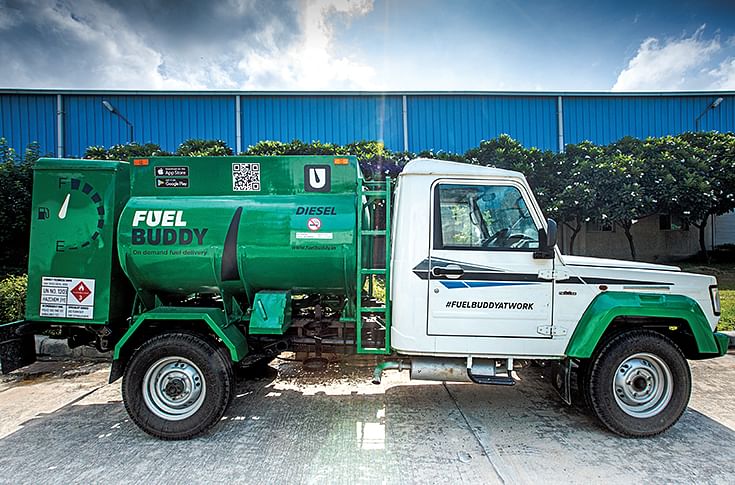
A Fuel Buddy fuel delivery truck
While there was no such regulatory guideline which would govern or allow anyone to enter such a business of mobile delivery of fuel up until March 2018, when, after a relentless push and constant effort put in by dynamic start-ups such as the Pune-based Repos Energy and Fuel Buddy, the Ministry of Petroleum and Natural Gas took notice of the potential business operation and invited applications for pilot projects.
With participation from the ministry, OMCs, start-ups and PESO (Petroleum and Explosives Safety Organisation), numerous pilots were conducted, spanning 51 projects across 32 cities in the country. Finally, an operating license was granted to all the eligible players who could now work with IOCL, BPCL and HPCL and negotiate bulk pricing for sourcing diesel directly from their select depots.
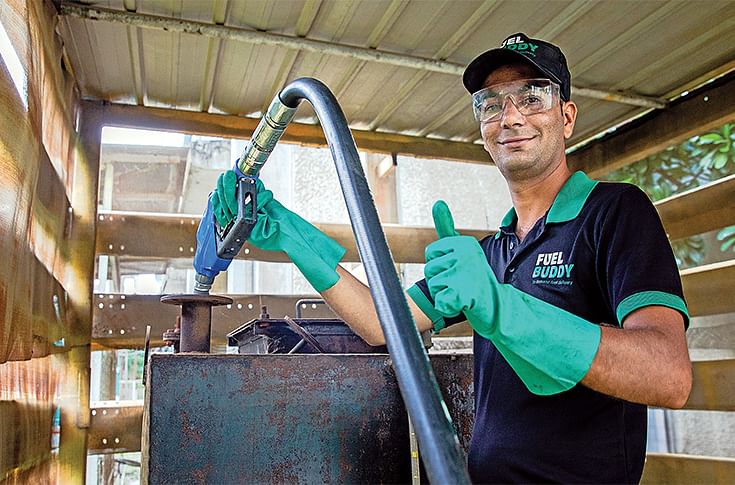
The company has taken special care on safety with a PESO-approved top-loading bowser. Fuel quantity and quality are ensured through in-built weight sensors and controllers which would raise an alarm at the slightest hint of adulteration at the fuel depot itself.
All this while, the three founders of Fuel Buddy — Gautam Malhotra, Adnan Kidwai and Divij Talwar — were putting their efforts together to develop the IoT-enabled pilfer-proof technology, building the truck (bowser) and re-engineering the dispenser to deliver unadulterated and accurate quantity of diesel at their client’s site. Their clientele today comprises real estate companies, hotels, schools and universities, manufacturing companies and logistics and infrastructure firms in the Delhi-Noida-Gurgaon-Faridabad-Manesar belt, between 6am-8pm on a regular day.
In the beginning, the team only saw muted growth, selling 70-75KL a month but demand shot up after January 2019, when it sold 100KL, escalating to 150KL in March and between March and July, having already surpassed 400KL supplies of diesel to companies such as QH Talbros, Oyo, AIS, Eros and Amity University among a host of customers.
While it currently operates a five-truck fleet, Fuel Buddy has commissioned three more trucks to go into production immediately and aims to have a total of 13 trucks in its fleet by Diwali this year.
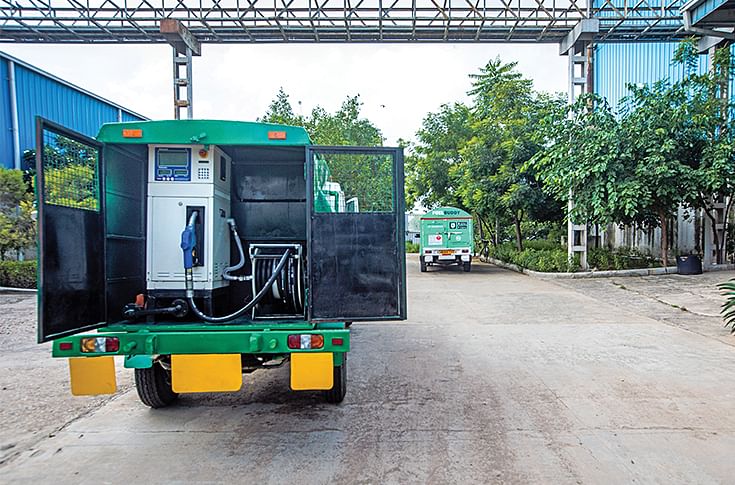
The high-speed dispensers come equipped with an RFID-based nozzle authentication system that dispense fuel only in the designated container at the client site
On the regulatory front, while the government had issued initial licenses to players to commence operations, in August-September 2018, a gazette was passed to make mobile delivery of fuel into a new law. This finally got clearance in March 2019, when fuel delivery was recognised as a legal business area in India.
According to Fuel Buddy, what differentiates it from other players is its sharp focus on technology to solve issues of exact quantity, pilferage, adulteration and payment. The company has built a single stack of software, hardware, back-end support, communications protocol and RFID solutions — all in-house — which facilitate faster communication between its devices, and thus, efficient operations.
Safety a priority
Dealing with a commodity as inflammable as diesel, safety was accorded highest priority at Fuel Buddy. The start-up had recognised the potential of its business idea, having seen casual transportation of diesel from fuel bunks to business complexes in jerry cans and in unapproved make-shift containers on three-wheelers.
“Safety was the biggest challenge and took our maximum resources in terms of solving the hydraulics and the pressure inside a closed 12KL vessel full of ignitable fuel,” says Gautam Malhotra, co-founder, Fuel Buddy.
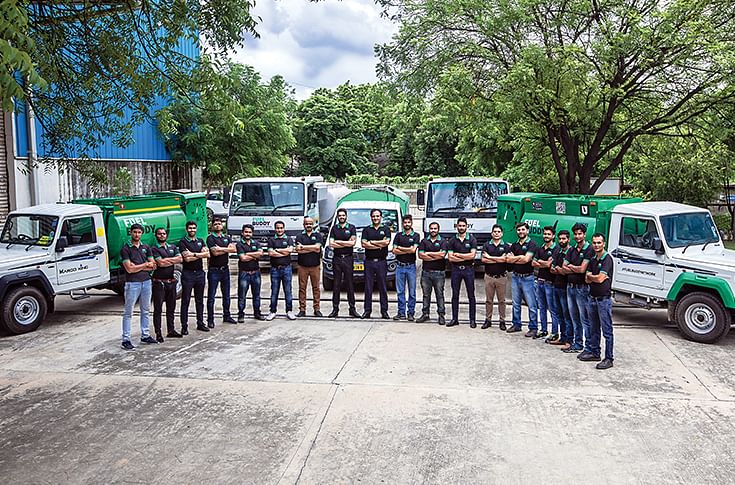
The Fuel Buddy team comprises young professionals with automotive, consulting and supply chain backgrounds
The company sources medium-duty commercial vehicles from Force Motors, Tata Motors and Mahindra & Mahindra. It gets the bowsers, built by a reputable vendor in Delhi, to pass rigorous checks and balances put in place by PESO, Weights and Measures Wing of the Department of Consumer Affairs, Department of Industrial Policy and Promotion, and Ministry of Petroleum and Natural Gas. The bowsers are top-loading to allow for speedy filling at the fuel depots and a high-capacity dispenser is placed at the back of every vehicle to unload the fuel at the client’s site.
Using telematics and IoT, the company has created a sort of a fool-proof system wherein its browser digitally 'talks' to the depot’s filling nozzle and the weight sensors and controllers ensure the right quantity and quality of fuel get re-fuelled inside the container. A three-level system authentication on its app and geofencing means that the truck is digitally locked and the driver drives straight from the depot to the client site, with no scope of pilferage whatsoever.
At the client site, an RFID-based Nozzle Authentication System (NAZ) ensures that the fuel is dispensed only in the allocated storage tank at the premises after a digital matching is done of both the RFID tags. While NAZ is in a beta-testing phase right now, Fuel Buddy is hopeful of implementing it over a few months of operations down the line.
Technology also rules the company's operations at the back-end with algorithms carrying out the route planning and automatically allocating multiple clients on an optimised route for best operational efficiencies.
Fuel Buddy's next target is to grow its retail to a few million litres in the near future and through an aggregator model, also expand rapidly. The network expansion plan will see the company reach out to Udaipur, Jodhpur, Kota, Goa, Chandigarh, Kanpur, Pune and Ferozabad, within this financial year itself.
Fuel Buddy's short-term vision is to reach 20 Indian cities over a period of 18-20 months. The team is now approaching venture capitalists for the next round of funding, considering that the initial investment which came from the founders themselves, having been consumed.
While entering a field as traditional as fuel supply sounds risky from a business perspective, given the global shift towards sustainability and renewables, Fuel Buddy also aims to emulate and extend its mobile fuel delivery model to mobile EV charging stations, once electric mobility and vehicle electrification picks up pace in India. “We are working on a very innovative solution on that front and it would be our next diversification area,” reveals Malhotra.
With technological disruptions engaging the mobility ecosystem, innovative start-ups such as Gemopai and Fuel Buddy are taking a giant leap of faith and aim to make a difference. Together with many other start-ups in India, in the automotive space and elsewhere, doing away with convention is becoming the norm.
(This article was first featured in the September 1, 2019 issue of Autocar Professional)
RELATED ARTICLES
Beyond Cars: VinFast's Full-spectrum EV Push in India
With $2 billion committed, VinFast is constructing an integrated play spanning cars, scooters, buses, ride-hailing and c...
A Breather for Hero
A combination of policy tailwinds, new products and Honda’s cautious approach on EVs put a stop to the constant encroach...
Renault India's Quiet Fixer
As the head of Renault India, Francisco Hidalgo Marques faces his biggest challenge yet.






 01 Oct 2019
01 Oct 2019
 12999 Views
12999 Views




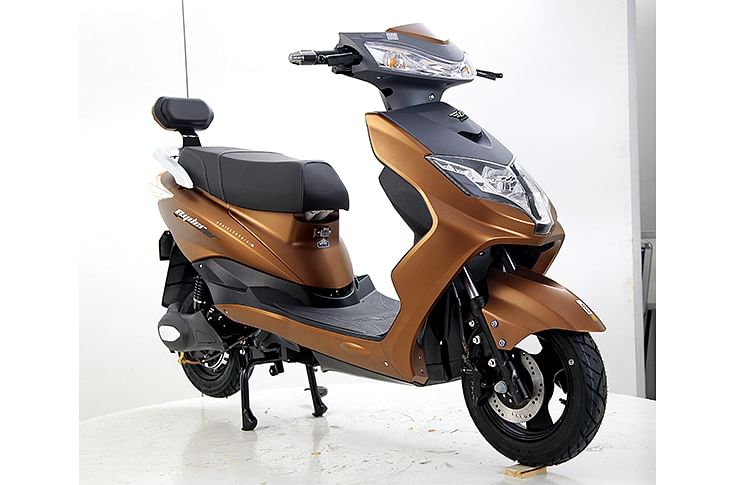

 Kiran Murali
Kiran Murali




